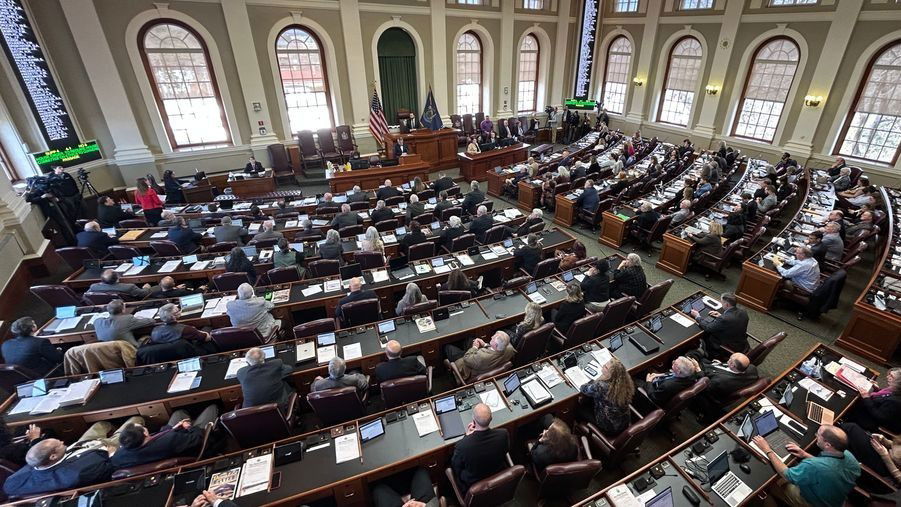Sportradar reports record-breaking match-fixing activity, $1.5 trillion sports betting turnover in 2021

Sportradar Integrity Services, a global supplier of sports integrity solutions and a division of Sportradar, on Thursday released a new report titled “Betting Corruption and Match-Fixing in 2021”, which detected a record number of suspicious matches and exposed the serious, ongoing threat these practices imply to the integrity of global sport at all levels, as the amount of money bet on sports reached record highs in 2021.
Sportradar’s bet-monitoring service, the Universal Fraud Detection System (UFDS), uncovered suspicious activity in 903 matches last year, across 10 sports and in 76 countries worldwide. It is the highest number of suspicious matches recorded in Sportradar Integrity Services’ 17-year history — a 2.4% increase on the previous high of 882 suspicious matches recorded in 2019.
The increase in suspicious activity arose alongside record levels of global sports betting turnover, which Sportradar now estimates at more than €1.45 trillion ($1.5 trillion). According to the report, in 2021 approximately €165 million ($180 million) was generated in match-fixing betting profit. Organized crime syndicates are funded by revenue generated from betting fraud, which can in turn finance other illicit activities. The overall sum generated through betting corruption last year may even be greater, as this figure does not include any other potential financial schemes such as money laundering.
‘903 suspicious matches were detected across 10 sports in 76 different countries.’ Download our report into
— Sportradar (@Sportradar) March 3, 2022
match-fixing and betting corruption here.
While the number of suspicious matches reached a record high, Sportradar underscored its commitment to protecting the integrity of global sport by working with its partners to support 65 sanctions: 46 sporting sanctions, 15 criminal sanctions and four sanctions both sporting and criminal.
These were delivered in 11 countries across football and tennis with lifetime bans handed down to eight athletes.
Soccer has the highest frequency of suspicious matches at a rate of one every 201 fixtures, lower-level competitions in soccer are significantly affected. It is followed by esports with one in every 384 and basketball at one in 498. September and October saw the highest number of suspicious matches detected with 105 and 104, respectively. This corresponds with the start of the traditional soccer season.
‘This is the highest number of suspicious matches seen in Sportradar Integrity Services’ 17-year history — a 2.4% increase on the previous high of 882 in 2019.’ Download our report into match-fixing and betting corruption here.
— Sportradar (@Sportradar) March 3, 2022
Assessing the year ahead, the report forecasts a further increase in the number of suspicious matches set to be detected in 2022.
Sportradar Integrity Services’ report into match-fixing and betting corruption serves to highlight the extent of match-fixing and the damaging effect it has on the industry. The intention is to publish the report annually in order to raise awareness of the latest and most extensive data and trends.
The company used its UFDS to monitor more than 500,000 sports matches in 2021 and to provide an in-depth analysis of the match-fixing landscape. As a large representative sample size, it can be taken as a strong indication of the true rate of match-fixing globally.
Andreas Krannich, Managing Director, Sportradar Integrity Services, spoke in a press release and said: “There is no easy short-term solution to the match-fixing issue, and we’re likely to see similar numbers of suspicious matches in 2022, if not more. As the market has developed, so the threat of match fixing has evolved. Now, would-be corruptors take an increasingly direct approach to match-fixing and betting corruption, with athletes messaged directly via social-media platforms”.
“We can take what we observed in 2021 and ask ourselves as fans of sport, what lessons can we learn? At Sportradar, we believe in adopting a progressive approach to integrity protection, through bet monitoring and intelligence gathering. This has been proven to deliver sanctions against those involved in match-fixing. Preventative measures, such as educating athletes and stakeholders, are also crucially important in the long-term fight against match-fixing.”

















































